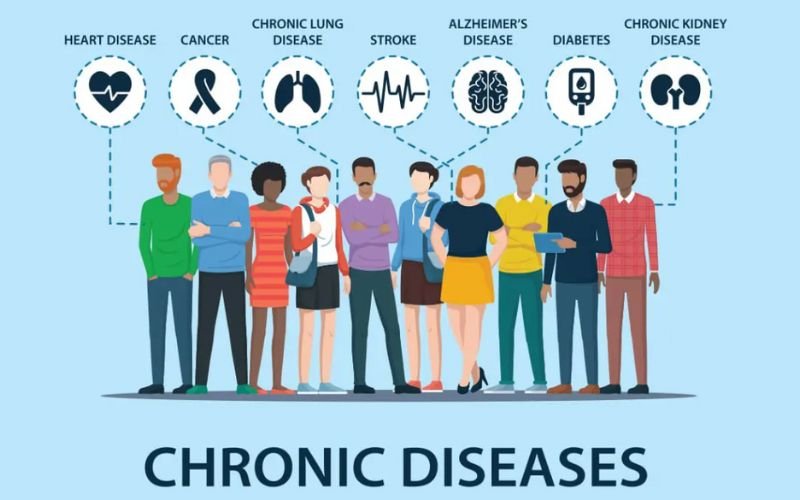
Menu
Chronic Medical Conditions
What is Chronic Medical Conditions?
Chronic medical conditions are long-term health issues that persist for an extended period, typically lasting three months or more. These conditions often progress slowly and may require ongoing management, treatment, and lifestyle adjustments. While some chronic conditions can be managed to prevent complications or flare-ups, they are generally not curable.

Common Characteristics of Chronic Medical Conditions:
- Long Duration: Lasts for months, years, or even a lifetime.
- Ongoing Management: Requires continuous care, medication, lifestyle changes, or monitoring.
- Varied Symptoms: Symptoms may range from mild to severe and can fluctuate over time.
- Impact on Daily Life: Often affects the individual’s ability to carry out normal activities and may require adjustments in work, social life, or physical activity.
- Multiple Factors: Often caused by a combination of genetic, environmental, lifestyle, and health factors.
Common Examples of Chronic Medical Conditions:
- Diabetes: A condition where the body either doesn’t produce enough insulin or cannot effectively use insulin, leading to high blood sugar levels.
- Hypertension (High Blood Pressure): Persistent elevation of blood pressure that increases the risk of heart disease and stroke.
- Asthma: A respiratory condition characterized by inflammation of the airways, causing wheezing, shortness of breath, and coughing.
- Heart Disease: Includes conditions like coronary artery disease and heart failure that affect the heart’s ability to function properly.
- Chronic Obstructive Pulmonary Disease (COPD): A group of lung diseases (e.g., emphysema, chronic bronchitis) that block airflow and make breathing difficult.
- Arthritis: Inflammation of the joints, leading to pain, stiffness, and reduced mobility.
- Chronic Kidney Disease: Gradual loss of kidney function over time, which can lead to kidney failure if not managed.
Treatment and Management:
- Medications: Many chronic conditions are managed with medications (e.g., insulin for diabetes, antihypertensives for high blood pressure).
- Lifestyle Modifications: Healthy diet, regular exercise, and avoiding tobacco or excessive alcohol can help manage or prevent complications.
- Monitoring: Regular check-ups and monitoring of vital signs, symptoms, or lab tests.
- Therapies: Some conditions may benefit from physical therapy, counseling, or other forms of rehabilitation.
- Support Systems: Psychological and emotional support, as chronic conditions can affect mental health and quality of life.